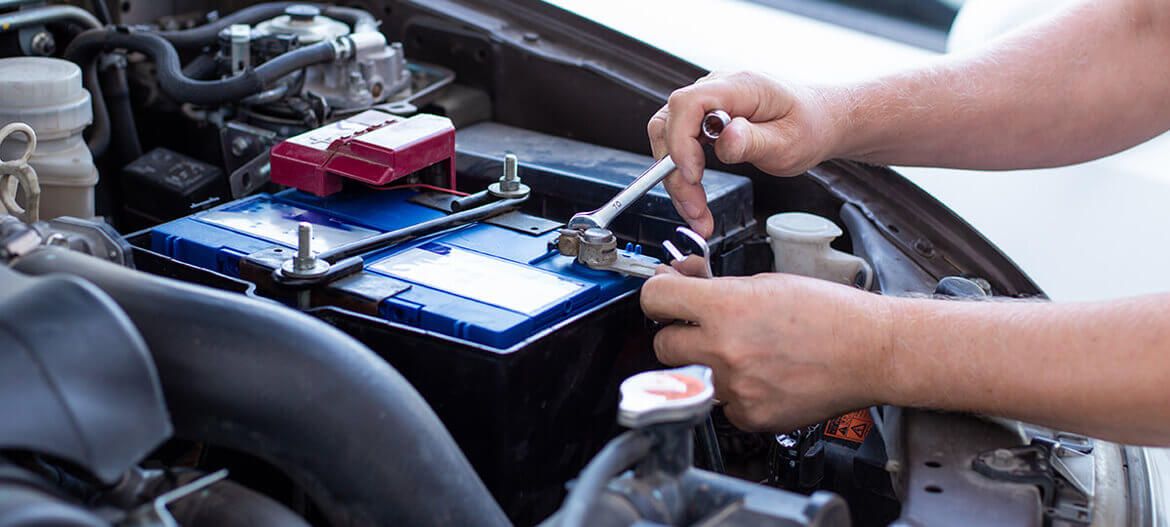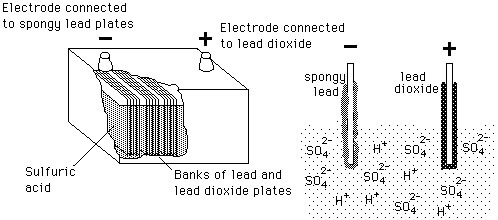
Sulfation Is Bad for Your Battery, Here's Why
Technicians discover an issue called sulfation while assessing the premature breakdown of your vehicle's lead-acid battery. Even though this is a widespread problem, chances are you've never heard of it. Understanding the ABCs of sulfation will assist you in comprehending your technician's explanations. It will also help you in determining how to prevent the problem from recurring in the future. With that in mind, here's a quick review of the battery damage that sulfation can cause.
WHAT ARE LEAD-ACID BATTERIES AND HOW DO THEY WORK?
Before delving into the mechanics of sulfation, it's helpful to have a fundamental understanding of how lead-acid batteries work. The inside of this battery is constructed of lead plates that are surrounded by a sulfuric acid solution. The plates, created of a substance called lead peroxide, have a positive electrical charge on half of them. Negatively charged plates constructed of sponge lead are used in conjunction with these.
A couple of things happen while current flows and the battery discharges energy during use. First, crystals of a material called lead sulphate are deposited on the positive and negative plates. When the sulphate in the sulfuric acid reacts with the lead in the plates, this chemical is formed.
When lead sulphate generation reaches its maximum, the battery's whole charge is depleted. Recharging is required at this stage. The lead sulphate crystals dissolve back into the sulfuric acid solution during the recharging process. The lead plates will then restore their positive and negative charges.
WHAT IS SULFATION AND HOW DOES IT WORK?
The development of lead sulphate on your battery's lead plates is referred to as sulfation. This accumulation happens every time your battery is turned on. You might be wondering why sulfation is such a big deal since it happens all the time. The sulfation process, it turns out, operates on two levels.
The formation of lead sulphate crystals in your battery is very transient during regular use. During the recharging cycle, the crystals vanish instead of being trapped in place. Sulfation issues arise when the lead sulphate layer becomes persistent and does not disappear.

PERMANENT SULFATION'S CONSEQUENCES
Permanent sulfation in a lead-acid battery can cause a variety of issues. A substantially shorter battery lifespan and outright battery failure are among the issues on the list. It also contains the following:
- Normal charging times have increased significantly
- Loss of starting power
- Temperatures inside your battery are unusually high
- The requirement to recharge your battery on a more regular basis
Experts agree that permanent sulfation is the principal cause of early lead-acid battery failure.
WHAT CAUSES THE ISSUE TO OCCUR?
Problems with battery sulfation can be caused by a number of factors. The following are examples of known causes:
- A long period of time passes between battery recharging cycles
- After recharging, a battery that is less than 100 per cent charged
- Recharging equipment with incorrect settings
- A battery with insufficient volumes of sulfuric acid solution
- Air exposure to lead battery plates
- Battery storage without access to an energy source
If you frequently leave your vehicle running at idle, you increase your chances of recharging to less than 100 per cent. The same issue can arise if you use a lot of power-hungry car plug-ins.
PERMANENT SULFATION: PREVENTING AND TREATING
Regular maintenance of your lead-acid battery is without a doubt the greatest approach to avoid permanent sulfation. A battery must maintain a charge of at least 12.4 volts during storage to avoid sulfation difficulties. You should also avoid keeping a lead-acid battery in temperatures above 24 degrees Celsius.
This is due to the fact that every ten degrees above that temperature doubles the discharge rate of stored batteries.
Is permanent sulfation always bad for a battery? Certainly not. If your battery's plates don't contain a thick layer of lead sulphate crystals, the situation can be reversed. A severely damaged battery, on the other hand, may never recover.
Only a professional with lead-acid battery knowledge should attempt to reverse the symptoms of persistent sulfation for safety reasons.
Have you noticed any indicators of persistent sulfation in your battery? A visit to Batco Batteries, your local automotive battery experts, should help you confirm the problem's existence. Professional recharging may be able to solve the problem if you're lucky.
If this isn't the case, you'll need to go out and get a new battery. It's comforting to know that you have options while looking for a suitable power supply. Many consumers exclusively shop at big-box car stores for products. Batco Batteries, on the other hand, has all of the options you'll need at an affordable price while also offering years of specialised knowledge.